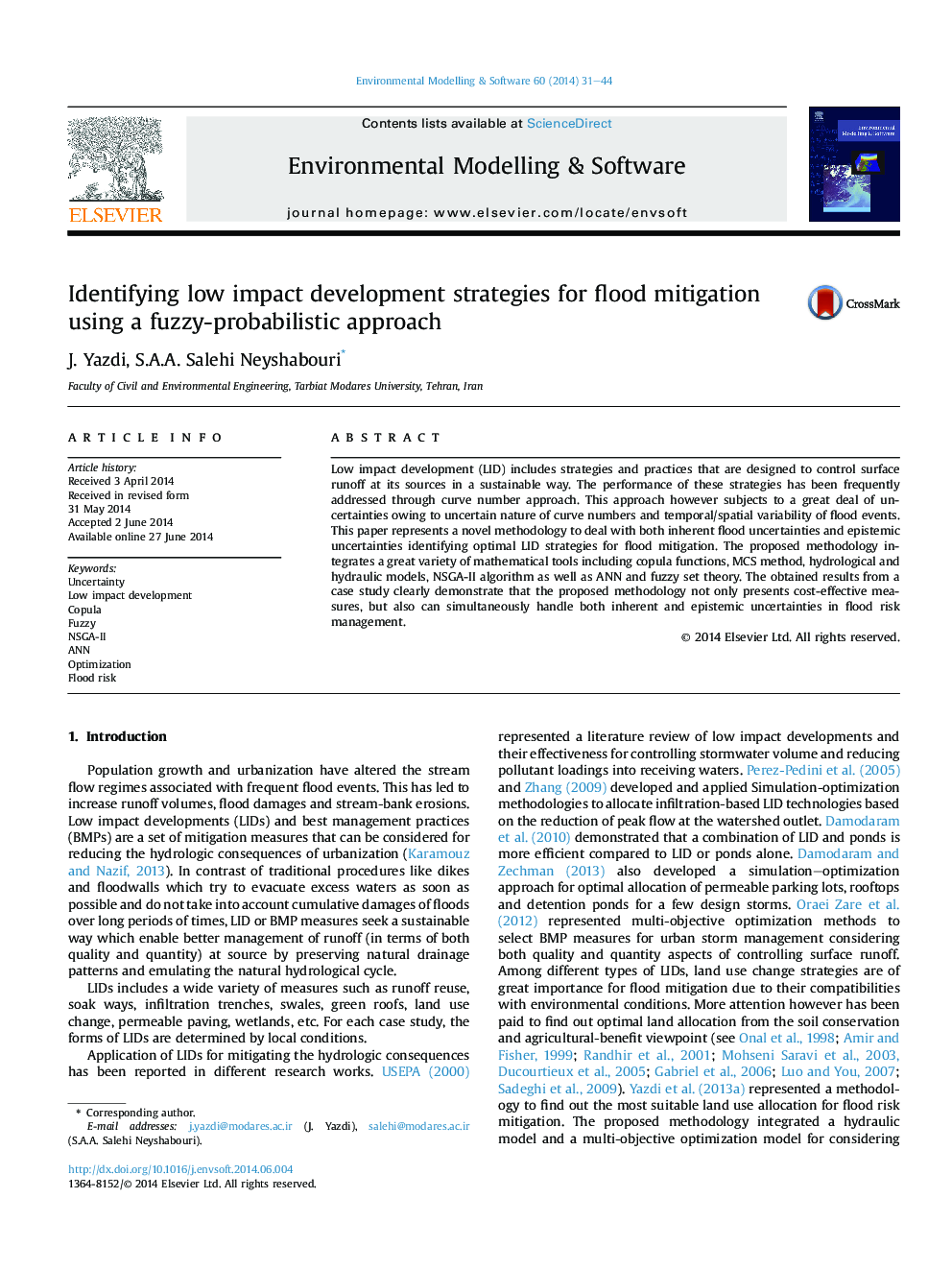| Article ID | Journal | Published Year | Pages | File Type |
|---|---|---|---|---|
| 6963718 | Environmental Modelling & Software | 2014 | 14 Pages |
Abstract
Low impact development (LID) includes strategies and practices that are designed to control surface runoff at its sources in a sustainable way. The performance of these strategies has been frequently addressed through curve number approach. This approach however subjects to a great deal of uncertainties owing to uncertain nature of curve numbers and temporal/spatial variability of flood events. This paper represents a novel methodology to deal with both inherent flood uncertainties and epistemic uncertainties identifying optimal LID strategies for flood mitigation. The proposed methodology integrates a great variety of mathematical tools including copula functions, MCS method, hydrological and hydraulic models, NSGA-II algorithm as well as ANN and fuzzy set theory. The obtained results from a case study clearly demonstrate that the proposed methodology not only presents cost-effective measures, but also can simultaneously handle both inherent and epistemic uncertainties in flood risk management.
Related Topics
Physical Sciences and Engineering
Computer Science
Software
Authors
J. Yazdi, S.A.A. Salehi Neyshabouri,
